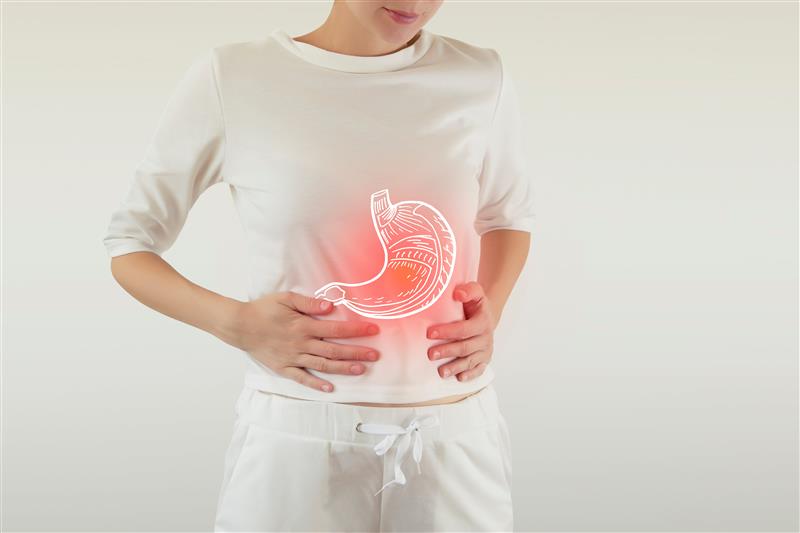- mycyclopedia
- 0 Comments
Overview
- Stomach infections can result from stomach flu (gastroenteritis), inflammation or irritation of the stomach lining (gastritis) or bacteria such as Helicobacter pylori. These infections can affect the stomach, its lining or sometimes the intestines. Common symptoms include feeling sick, vomiting, stomach pain or cramps, diarrhoea, fever, loss of appetite, bloating and frequent burping. The best strategies to prevent stomach infections are practicing good hygiene and handling food properly.1-4
Understanding Stomach Infections
Gastroenteritis (stomach flu)
- Gastroenteritis, often called the stomach flu, is an infection of the stomach and intestines that can lead to symptoms ranging from mild uneasiness to severe complications.1
- It can be caused by a virus, bacteria, or parasite.1
- Bacterial stomach infections are less common than the viral ones1; however, both pose a significant health risk as they result in dehydration from diarrhoea and vomiting.1,2
Causes2:
The germs can enter your body in several ways:
- Through contaminated food or water
- From objects like plates and utensils
- By spreading from person to person through close contact
Symptoms:
- Symptoms can vary from mild discomfort to severe and potentially life-threatening issues, and each person may experience them differently. Common symptoms include1:
- Feeling nauseated
- Vomiting
- Fever (sometimes very high)
- Stomach cramps and pain
- Diarrhoea, which may be bloody
- Dehydration
- Imbalance of body salts
- These symptoms can occur with all types of stomach flu (both viral and bacterial). High fever and diarrhoea are more common with bacterial infections,1 whereas sore joints/muscle pain, not eating well, and weight loss are associated with the viral ones.2 In cases of viral stomach flu, symptoms usually appear within 4 to 48 hours after exposure to the virus.2
Gastritis (stomach inflammation or irritation)
- Gastritis is a general term for a group of conditions that all involve irritation of the stomach lining. This inflammation can happen suddenly (known as acute gastritis) or develop gradually over time (called chronic gastritis).3
Risk factor3:
- Helicobacter pylori infection may result in gastritis or other upper digestive issues; however, this occurs in only some individuals. This may be attributed to some people being genetically more sensitive to these germs. Additionally, lifestyle choices such as smoking and diet can contribute to this sensitivity.
Symptoms3:
- Gastritis does not always cause symptoms, but when it does, you might experience the following:
- A dull or burning pain in your upper belly, often referred to as indigestion, which can feel worse or better after eating.
- Feeling nauseated.
- Vomiting.
- A sense of fullness in your upper stomach after eating.
Helicobacter pylori infection
- A H. pylori infection happens when the bacteria invade your stomach. This infection is a common cause of stomach ulcers, and it is estimated that more than half of the people in the world carry this bacterium.4
Causes4:
- This stomach infection is caused by H. pylori. These bacteria usually spread from one person to another through direct contact with saliva, vomit or stool. They can also be transmitted through contaminated food or water.
Symptoms4:
- Most people with an H. pylori infection do not show any symptoms. When symptoms do appear, they are usually related to stomach inflammation or ulcer and may include the following:
- A dull or burning pain in your stomach.
- Stomach pain that often gets worse when your stomach is empty.
- Feeling nauseated.
- Loss of appetite.
- Frequent burping.
- Bloating.
- Unexplained weight loss.
Hygiene Practices to Prevent Stomach Infections
The best way to avoid stomach infections is by practicing proper handwashing and ensuring food safety and clean water.1-4
Handwashing:
- Most germs spread from person to person through unwashed hands.2
- Limit contact with people who are showing symptoms such as vomiting or diarrhoea.1
- Wash your hands well when handling or preparing food.1
- Wash your hands well after using the toilet.2
- Use hand sanitizers with alcohol.1
Food safety:
- Handle food properly and safely.2
- Do not leave food out for too long when serving it; throw it away if there is any chance it has spoiled.1
- If you hear of contaminated food or drinks in the news, avoid consuming them.1
- Avoid eating food that has not been fully cooked.1
Water safety:
- Helicobacter pylori can spread through dirty food or water.4
- Having access to clean, running water lowers the risk of H. pylori infections.4
Best Hygiene Practices During Travel
Be mindful of what you eat and drink while traveling abroad. Here are some tips to lower your risk5:
- Wash your hands frequently, especially before meals.
- Carry a hand sanitizer to keep your hands clean.
- Restrain children from sitting or crawling on the ground.
- Avoid swimming in dirty water.
- Do not swallow shower water.
- Brush your teeth using bottled water.
- Avoid drinks with ice cubes made from tap water.
- Stick to fruits you can peel yourself.
- Eat only well-cooked food that is served hot.
- Choose canned or bottled drinks.
Most germs spread from person to person through unwashed hands. To prevent stomach infections, handle food safely and wash your hands thoroughly.2 You can lower your risk by practicing good hygiene and being careful with what you eat and drink when traveling.5 If you’re worried about stomach infections, consult your doctor.4
References:
- Bacterial gastroenteritis. Johns Hopkins Medicine. Accessed September 23, 2024. https://www.hopkinsmedicine.org/health/conditions-and-diseases/bacterial-gastroenteritis
- Phillips MM. Viral gastroenteritis (stomach flu). MedlinePlus. Accessed September 23, 2024. https://medlineplus.gov/ency/article/000252.htm
- Mayo Clinic Staff. Gastritis. Mayo Clinic. February 14, 2024. Accessed September 23, 2024. https://www.mayoclinic.org/diseases-conditions/gastritis/symptoms-causes/syc-20355807
- Mayo Clinic Staff. Helicobacter pylori (H. pylori) infection. Mayo Clinic. May 5, 2022. Accessed September 23, 2024. https://www.mayoclinic.org/diseases-conditions/h-pylori/symptoms-causes/syc-20356171
- Traveler’s diarrhea. Cleveland Clinic. Accessed September 23, 2024. https://my.clevelandclinic.org/health/diseases/7315-travelers-diarrhea

